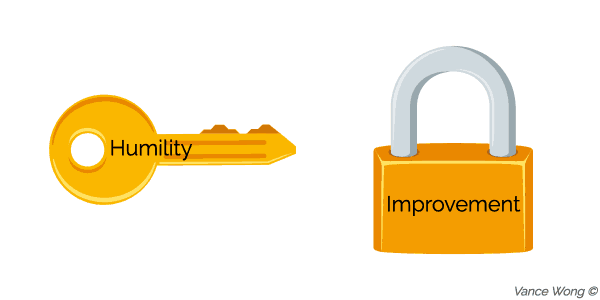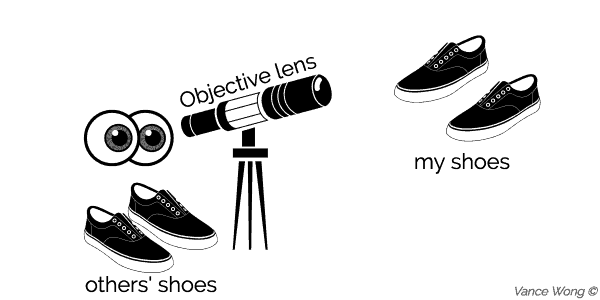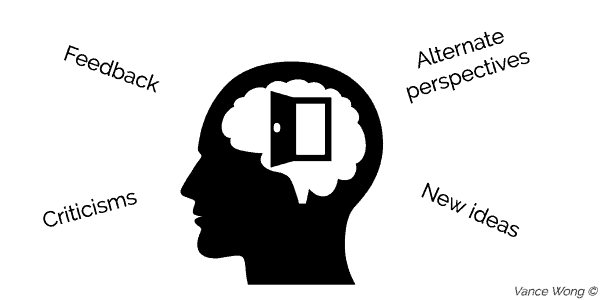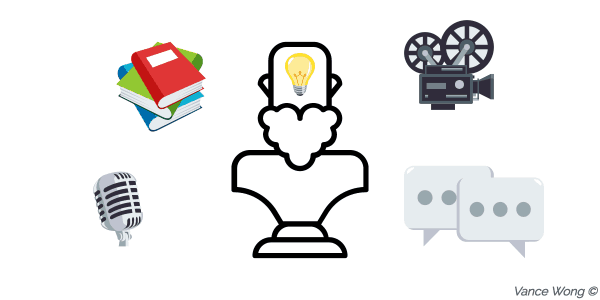
Photo by Kupono Kuwamura on Unsplash
Picture yourself receiving criticism from a stranger who doesn’t know who you are and why you do what you do. How would you react?
Will you protect your work, your beliefs and most importantly, your ego? Or will you allow your work and your beliefs to speak for themselves, and clarify any misinterpretations and judgments? Or maybe even learning a thing or two?
I used to lash out at anyone who sends criticisms my way.
“What do you know?”
“What rights do you have?”
“How dare you.”
Sure, the critic could have been just a troll or someone who hates my guts for no apparent reason. But I might also have lost a chance to improve myself and my work, an opportunity to hear someone else’s perspective and expand my horizon.
Humility is the key

Most people respond to criticism or feedback by either brushing it off or getting defensive. Because accepting a critique means I’m acknowledging that I’m not “enough”, which hurts my confidence and self-worth. I’m also obliged to do something to improve. But we all know making changes is the only way we move forward and grow to be decent human beings.
That could be why practising humility is easier said than done. It’s easy for me to tell everyone else that humility is important and necessary. But when it comes to myself, it’s like drinking bitter medicine – I know it’s good for me but feels like self-torture.
Without humility, though, our vision is very much narrow and focused on ourselves. We only do what feels good to us at the moment. There’s nothing wrong with enjoying the present. Knowing that I can change now to improve my future and not doing anything, is.
Undoubtedly, it is painful and exhausting to admit our flaws and work on improving ourselves. Especially when it involves rectifying decade-old bad habits and correcting narrow view points.
But if you want to improve and become better in life, you have to swallow the bitter medicine.
So how to be confident while not allowing our ego to screw things up? Here are three values I personally follow to keep my ego at bay.
Don’t make it all about yourself

A friend gives me feedback on how I can improve an article I wrote, “Your article is not explaining the value proposition clearly enough”.
Instead of defending my work, I look in his shoes, a person who is reading my article for the first time and trying to figure out what I’m offering to the reader.
Now, my friend might be wrong in the sense everyone else who read my article understands my advice clearly, except him, of course. But instead of showing him he’s wrong, I could practise some empathy and explain it to him in a way he could absorb better.
I could have made it all about myself, how I was right and he’s wrong. But I didn’t and shouldn’t because there might be others like him who can’t see the value proposition. I would have lost a loyal reader.
When doing anything and receiving feedback or criticism, be objective and understand why the other person is saying what he or she is saying. Practise empathy and focus on providing value to others. Loyalty from fans is the base of confidence.
Stand your ground but be open-minded

Another friend comes up to me and gives me similar feedback, “I don’t see what you’re offering to me as a reader in your article”.
At this point, two people had questioned my article, possibly among many others whom I don’t have a direct interaction with. These people might be on to something.
I could still stand by my belief that my article is providing value to my intended target audience. That’s being confident. But I should also understand and accept that I might be wrong, keeping my ego at bay.
If I allowed my ego to take over my rational part of the brain, I will sound defensive and explain it as if it’s a matter of the fact that my readers should receive value after reading my article.
Don’t take criticisms or feedback personally. Understand and accept that you might be wrong. Explain your stance but not as if it’s a matter of fact. Those are what confident people will do. Egotistical people are dogmatic and closed doors.
Focus on learning and not faulting

Always remember: It’s about what we learn from life and not who is right or wrong. There is little value in deciding who was right or wrong.
Faulting others and pointing fingers unnecessarily can be counterproductive. What good will come out if I were to shame my friends who can’t seem to get any value out of my article?
An egotistical person doesn’t even want to admit to any wrongdoings; he or she must always be right. Because an egotistical person feels the constant need for validation, recognition and credit. All just to inflate the ego further.
Conversely, if you’re right and others are wrong, think about how to learn from their mistakes and coach them if possible. A confident person isn’t afraid of making mistakes; that’s where we learn the most.
In my personal experience, the best way to gain confidence is to help others whenever and wherever possible. We all love people who can help us, and our liking gives them confidence as well. It’s mutual.
Ending thoughts about ego and further reading
Shedding the ego is the only way we become more confident about ourselves. An egotistical person can’t be confident just because a strong ego stems from insecurity, which comes from the self-doubt that his or her work and beliefs don’t have legs.
They react defensively to any alternate perspectives because they know if they don’t, their work and beliefs will crumble. When that happens, their identity gets threatened, and they enter an existential crisis.
Of course, I couldn’t have said it better than the man himself – Ryan Holiday, the best-selling author of Ego Is The Enemy. Here’s a video where Holiday discusses the fundamental difference between having confidence and an ego problem.
